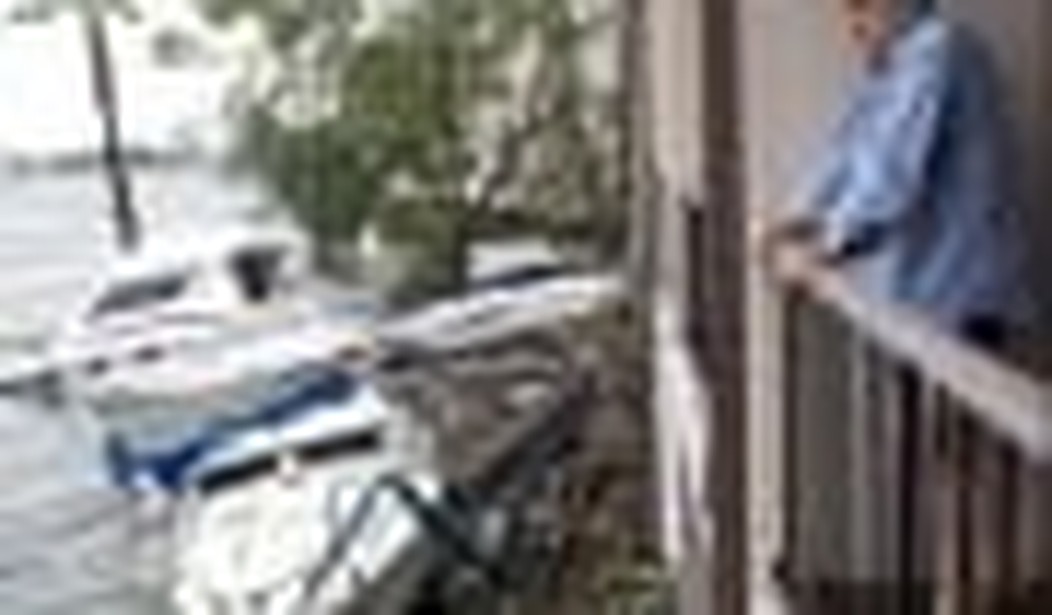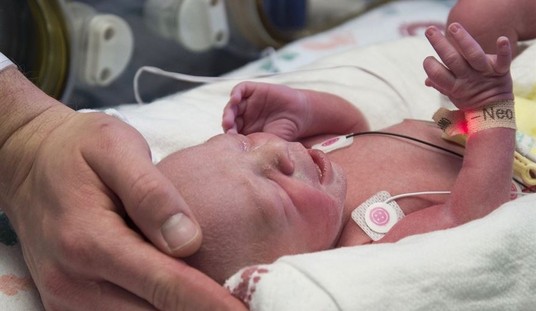I’m finding it difficult to integrate the Ike experience as I’m still living it and thousands — millions, really — of other Houstonians suffer far worse. Talking about branches and trees that fell in my yard or the small leak in our roof or the fact that we decided to leave in the face of the unknown seems equivalent to being a soldier with a flesh wound telling his war story while lying next to a guy who lost his legs. My family doesn’t have it bad and I want to be clear about that to start.
I live in The Woodlands, Texas, a planned community suburb 32 miles north of Houston. It is a wealthy community generally, although it is designed and is home to people of all income levels. Yes, there are some mega-wealthy people skewing the numbers, but the average family is middle class. The community is organized into villages anchored by grocery stores, restaurants, and small businesses. So, while over 100,000 people live in or near The Woodlands, the structure makes for more of a small community feel — you tend to see the same people at the stores, churches, schools, etc. In each village, there are low-income apartments all the way up to huge mansions on the golf course.
In certain situations, it’s not economics but psychology that matters. Without power, grocery stores, gas stations, banks, and businesses running, the economic ground is leveled pretty quickly. Survival becomes paramount. People make decisions based on the information — or in the case of a natural disaster, lack of information — available.
Like the rest of the country, I watched the hurricane coverage and saw it tear into Galveston and swallow up a good chunk of the island and almost with it Geraldo Rivera. The storm pushed through Houston and I followed its effects by staying connected to friends on Twitter until the roars and whistling wind and strange blue lightning hit my community. Around six a.m. The Woodlands lost power. No TV, air conditioning, refrigeration, washer and dryer, etc.
One of the marvels of modern technology is the iPhone. With a car charger — we had no generators — I could keep it going and stay connected. That was how I Tweeted and blogged despite the lack of services. And then that ended, too, on Sunday mid-morning.
Saturday, people in the neighborhood spent their time getting out — as in cutting down the massive trees blocking roads and driveways. In some neighborhoods, the trees were so massive that the people had to be cut out by the operating company’s trucks. One neighborhood with only one way in and out, Grogan’s Point, spent Saturday stuck. Every home — and that is not an exaggeration — had at least one tree down. The community is called The Woodlands for a reason. Trees define it. The question was where the trees went. Many went through the roofs of their owner’s homes causing flooding.
Saturday morning brought unrelenting rain, so a hole in the roof meant water damage, too, which means mold. Once the rain leaves and holes are plugged, there is heat. So while the homes might not be total losses by being buried by water, they will be a big mess for a long time.
We decided to explore the community Saturday afternoon. Many roads were impassable because of flooding and trees down. Stores were closed. Teenagers made the most of the excess water and kayaked down the street and into the lake. The rest of the damage looked grim.
It rained more Saturday night and Sunday morning. Sunday morning we ventured forth again and much had been accomplished. Roads were drivable, water receded, and the HEBs were open for non-perishable foods — they brought in generators before the storm, a wise gamble both for their bottom line and to serve the people. Lines snaked out for a long ways and people were allowed into the store a few at a time. No ice, though, and what people needed by this point was ice. Anything in the refrigerator was going bad even with stockpiled ice. Ice melts in a refrigerator and fairly quickly, too. The kids, so used to opening the fridge every time they walk by, were broken of the habit — my husband tied the doors shut.
Heat was rising in the refrigerator and the house, too. My anxiety and that of my neighbors rose with the temperature. Toughing it out with cans of tuna and a shotgun might seem fine without kids, but with children, the notion doesn’t seem so palatable especially considering Entergy’s three-week estimate for returned electricity. Two days without electricity felt like a long time. Two weeks?
In hopes of gathering information and improving our mood, we decided to go to church and see what else was going on in the community. By this time, most roadways had one lane open and the flooding receded in most places. Now, it was time to clean up yards and help those with severe roof damage. At noon, the landlines and my cell service went dead (AT&T). Sprint’s network had spotty service.
People exchanged stories. People seemed worried, but calm — and what can you do anyway? We went home and got to work. I enlisted the kids and had the pleasure of hours of bellyaching complaints about fire ants, bugs, sticks, hot and then cold, and “how long do we have to do this?” Their whining steeled my resolve. The yard got cleaned.
Before clearing the yard, I cleaned the house. The trashcan was filled. The temperature in the house was pushing 80 degrees. And the latest report was that power would be out for three weeks. So, we had a choice: either drive somewhere to buy a generator and the fuel to keep it going — which was scarce — or leave to stay with family. Since the former seemed dicey — people had bought up generators in anticipation of the storm — leaving seemed to be the logical answer. Our refrigerated food would be bad within another eight hours; the meat in the freezer, a loss without a generator. We had a hard time giving it away as no one else had refrigeration either. A friend of a friend drove in from Huntsville to get it. At least the meat wasn’t wasted. We gave perishables to neighbors. We packed clothes, kids, dry food, and the dogs before dark — no light — and we left.
For 60 miles the communities alongside I-45 sat dark. The drive was eerie. Traffic was light leaving Houston, but a steady stream of cars drove toward the city. Did these people realize there was no gas? No food? Why were people coming back already? Past Huntsville, every hotel was packed full. Until Dallas, hotels had no vacancy.
We stayed at the Holiday Inn Express in Plano. The hotel was filled with refugees like us. Some had nothing to go back to. Some had disasters to face. Some just wanted to be in a place where there was air conditioning, food, and fuel. The mood was resigned and anxious.
Perhaps the most challenging part of this experience is the lack of good information. Even as an evacuee, the national news is worthless. People need solid information about their neighborhood and their community. Specifics. Families outside the area want direct confirmation that their family is safe. With no communications from within the community, this is impossible.
Communication relies on power. So, when the cellular towers lose power, cell phones go down. When the government uses landlines for communication, people can’t connect with family.
In addition, the power companies themselves seemed reticent to keep the website updated. I’m speaking about Entergy in particular. It seems to me that a blog or Twitter feed updating residents about progress would be helpful. Even discouraging news helps people make their plans. No news is not good news. People need to have accurate information in order to make good decisions.
During a crisis, people surprise you and some don’t. People are kind and generous and giving. The community pulls together and helps one another. One of our friends hooked his generator up to two neighbors’ homes so they didn’t lose food even though it meant he lost air conditioning.
Only five days after the storm, it feels like time stretched. It doesn’t feel like this happened less than a week ago. For some people, the work is just beginning. They are just now coming home and seeing where it used to be. For others, like us, we aren’t sure of the final economic impact. We are small business owners and haven’t yet seen our office. We are assuming that it is okay, but we don’t know yet. We are just now having the luxury of thinking about it. Up to this point, it’s been survival — making sure we are able to feed and protect our kids.
In any natural disaster, it gets pretty primal pretty quickly. And even the best prepared and provisioned are looking at low fuel and frayed nerves by this point. So, here I sit in Florida. My neighbor called last night to report that our neighborhood had power. Other neighborhoods will get their power back over the next few days or weeks. We will head back this weekend and see what’s in store.
In the meantime, we decided to make this an adventure for the kids. We have some leftover multi-day passes to Disneyworld that we’ll probably use tomorrow. We are fortunate. Many Houstonians will be struggling for quite some time.









Join the conversation as a VIP Member